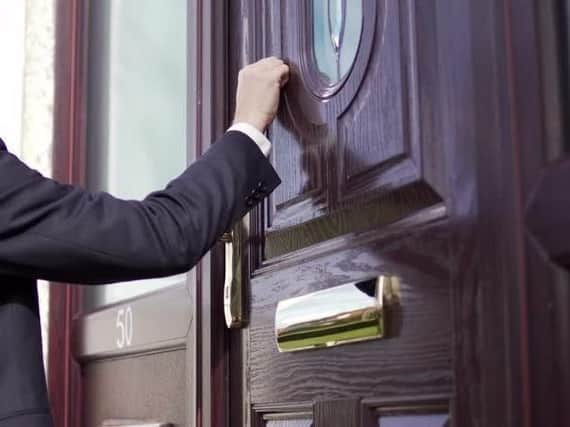Use of bailiffs to chase council tax debt skyrocketed in Blackpool last year


The seaside resort has upped its calls on bailiffs to gather debts from individuals and businesses to 9,991 - a figure hiked by a whopping 76 per cent between 2016/17 and 2018/19 - the highest increase on the Fylde Coast.
The Money Advice Trust (MAT), which runs National Debtline and Business Debtline, made the findings after receiving freedom of information (FOI) responses from 367 local authorities.
Advertisement
Hide AdAdvertisement
Hide AdBailiffs, also known as enforcement agents, can visit a property to remove and sell goods to repay certain debts, including council tax arrears, parking notices and other debts owed to councils.
Of the 9,991 occasions the authority in Blackpool had instructed bailiffs; 7,097 were for council tax, 1,829 were for parking and 1,065 were for collecting business rates.
A Blackpool Council spokesman said: “Councils have a duty to their residents to collect taxes. These funds play a significant role in funding the services that we provide to the people of Blackpool.
“The Council utilises the most appropriate methods to recover debts and this includes the use of Enforcement Agents.
Advertisement
Hide AdAdvertisement
Hide Ad“With regard to Council Tax, action being taken to recover unpaid Council Tax increased during the last financial year following additional resourcing of our own Recovery Team and this is reflected in the increased numbers of cases being issued to the Enforcement Agent.
“The Council remains sympathetic to those in genuine hardship and prior to enforcement agents being engaged the Council issues a number of documents providing customers with an opportunity to pay.
The Council signposts where assistance is available for those struggling to pay and employs a money advice team for customers with debt problems.
Data reveals that Lancashire County Council referred debts for parking to bailiffs in 2018/19 a total of 8,212 times but the FOI undertaken by the MAT gave no previous figure to compare it to in order to establish an increasing or decreasing trend.
Advertisement
Hide AdAdvertisement
Hide AdMeanwhile in the previous financial year, Fylde Borough Council instructed bailiffs to collect debts from individuals and businesses on 1,798 occasions - an increase of 14 per cent since 2016/17.
Of the total 1,798 bailiff referrals 1,688 were made over council tax debt and 110 made to collect business rates.
Wyre Borough Council called for bailiffs to collect debts on 4,589 occasions in 2018/19 but numbers for the year before were not listed.
A spokesman from Bradford-based debt charity Christians Against Poverty (CAP) said: “Our evidence shows that it is especially stressful to owe a council or a Government department.
Advertisement
Hide AdAdvertisement
Hide Ad“They can seem faceless, not especially approachable and the punishments are potentially more severe. People are still jailed for Council Tax and the threat of that can be considerable.
“Most of the debt clients we help are on a very low income and a small change in circumstances has begun a downward spiral in their finances which is hard to reverse without specialised help.”
In 2018/19, Blackpool Council instructed bailiffs to collect debts from individuals and businesses on 9,991 occasions - an increase of 76% since 2016/17.
Total of 9,991 bailiff referrals includes: council tax 7,097, parking 1,829, business rates 1,065.
Advertisement
Hide AdAdvertisement
Hide AdIn 2018/19, Fylde Borough Council instructed bailiffs to collect debts from individuals and businesses on 1,798 occasions - an increase of 14% since 2016/17.
Total of 1,798 bailiff referrals includes: council tax 1,688, business rates 110.
In 2018/19, Wyre Borough Council instructed bailiffs to collect debts from individuals and businesses on 4,589 occasions. Total of 4,589 bailiff referrals includes: council tax 4,439, business rates 150.